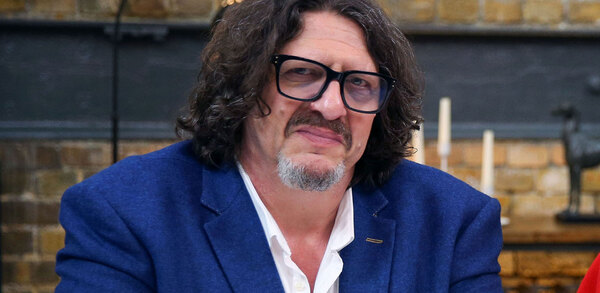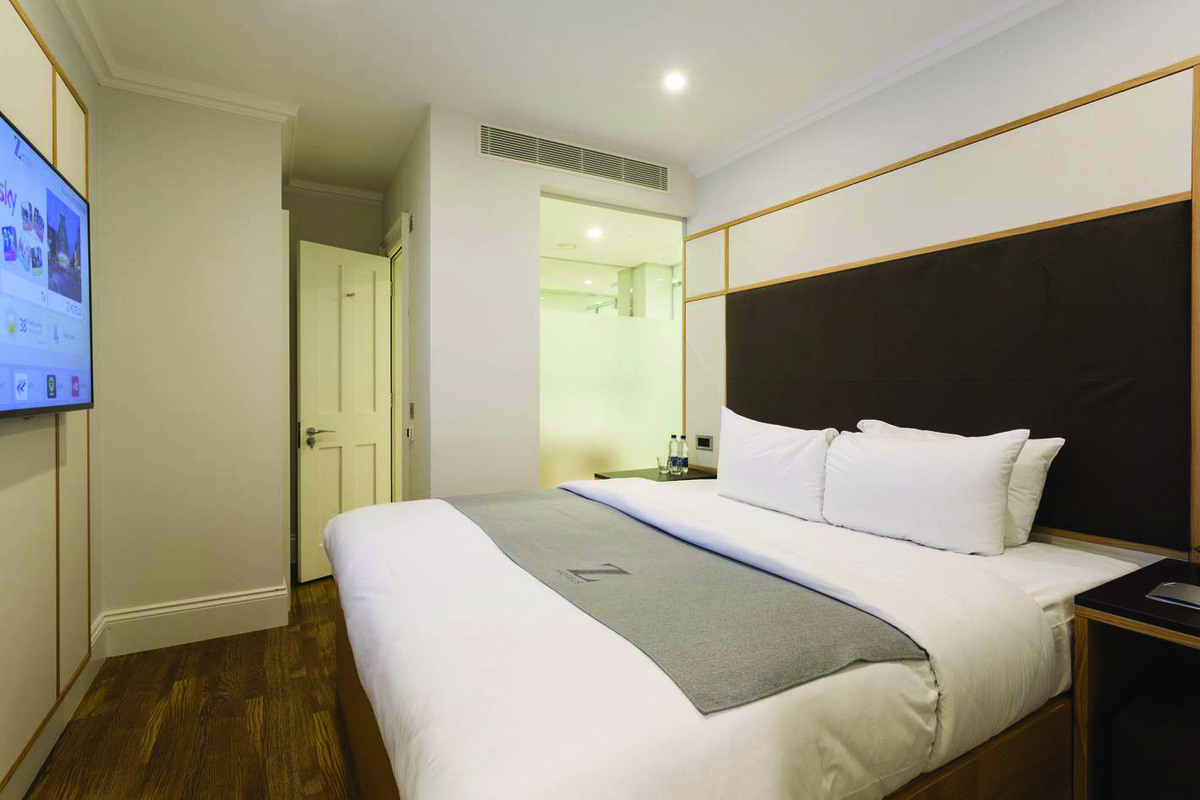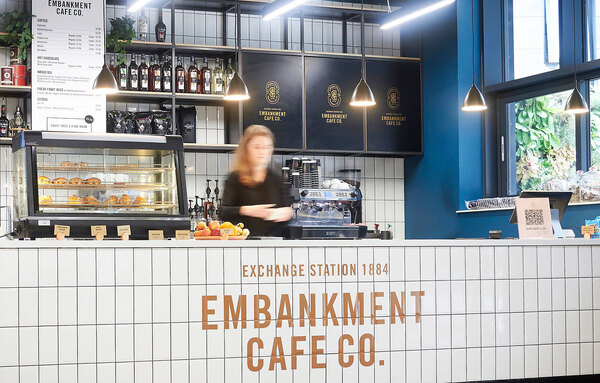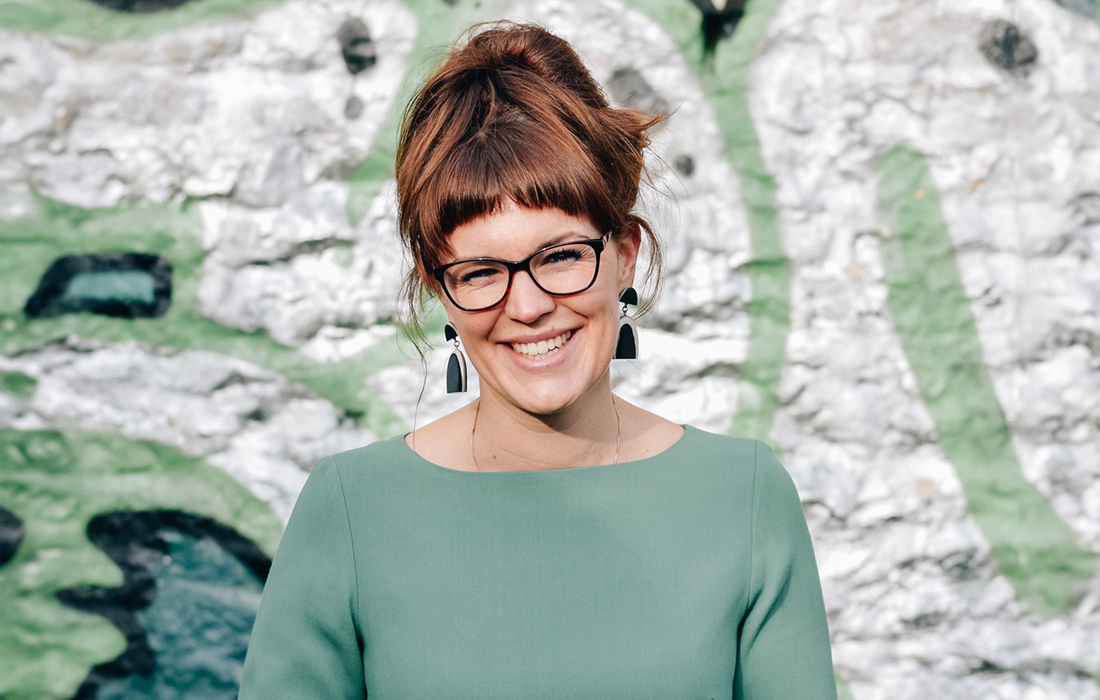Caterer roundtable on the green challenges for hospitality
To mark the launch of its Green Start initiative, which helps hospitality businesses to go green, VisitEngland gathered together some of the finest sustainability brains in the sector to share their tips and discuss the challenges for the industry. The event, chaired by VisitEngland chairman Penelope, Viscountess Cobham, took place at Shoreditch Trust's eco-friendly training restaurant, Acorn House. Neil Gerrard listened in.
Top tips for making your business "green"
EW Don't get a consultant in to change your business - make the changes yourself. You know your own business better than anyone else.
CW Communicate with your staff and bring your team along with you.
**JE **Encourage all staff to take an active role in contributing to innovation.
| THE PARTICIPANTS |
| Penelope, Viscountess Cobham (VC) - Chairman, VisitEngland Jane Carlton Smith (JCS) - Project manager at the Centre for Environmental Studies in the Hospitality Industries, Oxford Brookes University Richard Hammond (RH) - Journalist and founder of www.greentraveller.co.uk Govert Deketh (GD) - General manager, Marriott Hotels Emma Wellman (EW) - Sustainability adviser, Earls Court and Olympia (EC&O) Martin Sachs (M Sachs) - London Canal Museum Sandra Barnes Keywood (SBK) - Old Chapel Forge B&B, Chichester, West Sussex Michael Smith (M Smith) - Managing director, Venus Company John Forte (J Forte) - Sustainability specialist Camilla Woods (CW) - Head of commercial services, British Hospitality Association Stephen Farrent (SF) - Director, International Tourism Partnership Jamie Eagles (JE) - Director, Shoreditch Trust Jason Freezer (J Freezer) - Sustainability project manager, VisitEngland |
JCS Engage with your community. As a small business, make links with as many small businesses in your area as you can. And if you want to make a real impact, look at your supply chain.
M Smith A little bit of knowledge goes a long way. Focus on an area and then ask as many questions as you can. You need to understand what is available because most people out there don't know. You have to become a mini-expert.
**RH **Green is no longer extreme. The best places that I have seen have really marketed themselves not on the green aspect but as a fabulous place to stay. The greenness comes out when people go and stay there and they feel better about staying.
J Forte All the winners in business can be identified in one way: waste. If you stop wasting electricity, gas and water, you save a lot of money as well as saving the environment.
GD Focus on two or three things. Find what works for you then gradually implement it. If you are not passionate it is not going to work. Being green is a way of life.
SBK For any size of business, the first thing you should do is set up a green team within your company, and that should be everyone within each department.
The challenges
EW There are only about 200 people in our team and most of those people have worked with us for a long time. So we've got people who have working in the same job for 20 years and getting them to change the way they do things has been extraordinarily difficult. The amount of times I have heard: "but we have always done it this way" has driven me insane. But I think we are finally now, in 2010, getting people to understand what we are doing. Although some people still go pale and leave the room when I mention sustainability!
J Freezer The reasons to go green and invest in sustainability are there. They are not new stories. But we are still not seeing numbers of businesses that are doing it. Some are playing around the edges, but even when we did research just two months ago there were still just under 20% of the whole industry that said they were not interested, they didn't understand it and they didn't want to understand it. That's quite a worry.
RH There is a fear of greenwash, and a worry that if you start, you might start in the wrong direction.
SBK And the support. All the county councils and local tourism bodies pay lip service towards green tourism but when you get to the ground, they are not doing anything for those green businesses. In Chichester we had a problem where we had all our green logos taken off our website because we were seen to be getting more business than the other B&Bs! We still have a long way to go and although VisitEngland is embracing it, we have a problem with our regional tourist boards. We need to keep this message going. If we can get the small businesses engaged, big businesses will engage anyway because of financial reasons.
JE The main challenge for us is maintaining the knowledge within the organisation. And that's a particular problem when you set yourself up as a training restaurant. You are building into the business model the fact that you are going to generate hopefully very successful people who will want to go on and do their own thing. You have to make sure that the knowledge is kept within the organisation.
Should you have a "green team"?
M Smith I am sceptical when a company comes and tells me they are going green and they have appointed a green manager. I don't understand it. To me being green is part of corporate responsibility and every department should be environmental. And I don't understand, frankly, why they have a green department. Every department should have environmental responsibility.
SBK For bigger companies you need a green team. If you are a small business, the ethos runs through everything because you are controlling everything. But in a larger business you don't have that.
M Smith But if I was CEO of a big company and I said to every head of department as part of your report to me I want to know what your department is doing about the environment, it is done. You ask the question, you measure it and it happens. It has to be part of how you do business and not another function.
EW That's a wonderful idea but it doesn't necessarily work in practice in all companies. If we had waited for our CEO to make those decisions, we wouldn't be where we are now. We have done it almost through the middle level by saying we are going to make some changes. The CEO is on board but he came on board later.
GD If you are a large corporation and you do not control change, people will go off in all sorts of directions.
Martin S A green team is sometimes a way of generating ideas. I agree entirely that it has to be part of the management process but I think it can be a way of invigorating an organisation and generating cross-departmental ideas. But everyone from chief exec downwards has to be on board.
Does a sustainable offering boost your bottom line and how do you choose the right supplier?
**JE **The biggest influencer, and it wasn't the case three years ago, is the customer and the expectation that certain practices are simply not good enough any more. I've noticed that there is a chain in Australia that is listing the CO2 emissions on their burgers and so on. We've never gone down that line because at the core of the business is good food. It's not about being worthy, it is about good food and good service. What people want is the ability to not have to worry about whether food is in season, or if it has been flown in. They want the confidence to not have to think about that.
M Sachs I think that is absolutely clear. For the average customer, if there is a choice between two products, the green one wins.
GD Commercially speaking, I think there is still a very tight balance there. I am not talking for Marriott, but as an example if you have 300,000 rooms and you have to buy 300,000 rashers of bacon a day for breakfast, you will definitely think about the pound in your pocket. You may make the commercial decision to buy non-Fairtrade or non-environmentally friendly products because the customer doesn't want to pay £25 or £30 for breakfast, they want to pay £10 or £15.
SF I think we should broaden our definition of the customer as well because I think as individual consumers, we are all slightly ambivalent. But if you take it at a corporate purchasing level, you need to go to a number of different global suppliers and ask about what is this business doing in terms of its environmental policies.
SBK For big businesses it is a different angle. For a small business such as mine, people are willing to come to me and pay more for that enhanced experience.
M Smith I think purchasing is probably one of the core issues. People who come on holiday in the South-west want local food. But there is a supply problem, there is no question of that. People may want English chicken or English bacon. But if McDonald's suddenly decides to change supplier, it distorts the market. So there is quite an issue in terms of producer education but also Government education to try and manage that shift. There is also an issue of supply and demand because until there is more supply of something then the price won't come down - but until the big guys say yes I want it, they don't produce it.
GD We deal with a vegetable supplier and we do look at how green they are. We are not there yet but there is a real commitment on their behalf to change. But change requires capital investment and a change of methods. We are pushing them to do that, and the consumer is pushing us. Newspapers and the media are helping that as well. We are going in the right directions and we will see a very different picture in five years' time.
M Smith It has changed hugely in the past 10 years. When I started my business in 1995 and we asked for an environmentally friendly cleaning product, people looked at you as if you were daft. But things are starting to change and that is hugely important. The big companies have a huge role to play in that change.
JE Hopefully in more stable and prosperous years to come we are going to see environmental issues not just be about how to save costs and improve the bottom line but about positioning in the marketplace and adjusting a premium for a quality product.
New Green Start online tool helps firms to go green
VisitEngland hopes that it can hammer home the message of why it is a good idea for hospitality businesses to go green with the launch of its new online Green Start toolkit on the www.better-tourism.org website.
The site targets companies which haven't engaged in sustainability yet. The tourist board claims simple steps in sustainability businesses can reduce their energy waste and water costs by at least 10%, with additional possible savings to be made of up to 40%.
It offers a series of simple steps, starting by showing why it is worth going green, before providing an interactive 10-15 minute audit to help businesses understand how they are doing so far. After the audit, the site will help them to create an action plan which helps guide businesses through a dense forest of the green tools and programs already available and explaining which ones are right for them.
Among other features are access to an online forum where businesses can share ideas on how best to make sustainability work for them, as well as the opportunity to sign up for Green Edge training - a one-day course devised by the Regional Tourist Board Partnership to complement Green Start.
Jason Freezer, VisitEngland's sustainability manager, said: "Sustainability isn't about doing business differently, it is about doing business better. This site is about businesses helping us to help themselves."
Win one year's free Green Tourism Business Scheme membership!
To mark the launch of Green Start, VisitEngland is offering one reader's business:
1. Membership of Green Tourism Business Scheme for one year following the completion of Green Start (www.better-tourism.org)
2. Entry on to the Green Traveller website and review by one of the Green Traveller team.
3. The Environmental Management for Hotels book from ITP (www.tourismpartnership.org/Publications/EMH.html)
To enter the competition, write to sustainable.tourism@visitengland.org and explain in no more than 100 words why your business needs help to go green. The deadline for entries is 1 July. Winners will be announced in Caterer on 9 July.
















